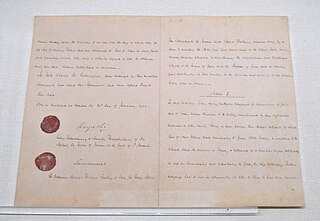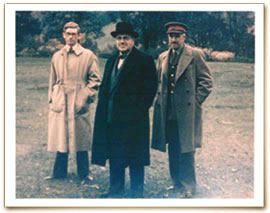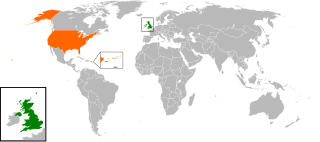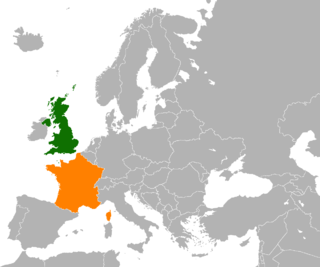
Arnold Joseph Toynbee was an English historian, a philosopher of history, an author of numerous books and a research professor of international history at the London School of Economics and King's College London. From 1918 to 1950, Toynbee was considered a leading specialist on international affairs; from 1929 to 1956 he was the Director of Studies at Chatham House, in which position he also produced 34 volumes of the Survey of International Affairs, a "bible" for international specialists in Britain.

Anti-English sentiment, also known as Anglophobia, refers to opposition, dislike, fear, hatred, oppression, persecution, and discrimination of English people and/or England. It can be observed in various contexts within the United Kingdom and in countries outside of it. In the UK, Benjamin Disraeli and George Orwell highlighted anti-English sentiments among Welsh, Irish, and Scottish nationalisms. In Scotland, Anglophobia is influenced by Scottish identity. Football matches and tournaments often see manifestations of anti-English sentiment, including assaults and attacks on English individuals. In Wales, historical factors such as English language imposition and cultural suppression have contributed to anti-English sentiment. In Northern Ireland, anti-English sentiment, arising from complex historical and political dynamics, was exemplified in the IRA's targeting of England during the Troubles.

The first Anglo-Japanese Alliance was an alliance between Britain and Japan. It was in operation from 1902 to 1922. The original British goal was to prevent Russia from expanding in Manchuria while also preserving the territorial integrity of China and Korea. For the British, it marked the end of a period of "splendid isolation" while allowing for greater focus on protecting India and competing in the Anglo-German naval arms race. The alliance was part of a larger British strategy to reduce imperial overcommitment and recall the Royal Navy to defend Britain. The Japanese, on the other hand, gained international prestige from the alliance and used it as a foundation for their diplomacy for two decades. In 1905, the treaty was redefined in favor of Japan concerning Korea. It was renewed in 1911 for another ten years and replaced by the Four-Power Treaty in 1922.

Colonel Sir Arthur Edwin Young was a British police officer. He was Commissioner of Police of the City of London from 1950 to 1971 and was also the first head of the Royal Ulster Constabulary to be styled Chief Constable. Young was instrumental in the creation of the post of Chief Inspector of Constabulary.

Paul Michael Kennedy is a British historian specialising in the history of international relations, economic power and grand strategy. He is on the editorial board of numerous scholarly journals and writes for The New York Times, The Atlantic, and many foreign-language newspapers and magazines. His monthly column on current global issues is distributed worldwide by the Tribune Content Agency.

Sir Francis Harry Hinsley, was an English intelligence officer and historian. He worked at Bletchley Park during the Second World War and wrote widely on the history of international relations and British Intelligence during the Second World War. He was known as Harry Hinsley.

Relations between the United Kingdom and the United States have ranged from military opposition to close allyship since 1776. The Thirteen Colonies seceded from the Kingdom of Great Britain and declared independence in 1776, fighting a successful revolutionary war. While Britain was fighting Napoleon, the two nations fought the stalemated War of 1812. Relations were generally positive thereafter, save for a short crisis in 1861 during the American Civil War. By the 1880s, the US economy had surpassed Britain's; in the 1920s, New York City surpassed London as the world's leading financial center. The two nations fought Germany together during the two World Wars; since 1940, the two countries have been close military allies, enjoying the Special Relationship built as wartime allies and NATO and G7 partners.

The historical ties between France and the United Kingdom, and the countries preceding them, are long and complex, including conquest, wars, and alliances at various points in history. The Roman era saw both areas largely conquered by Rome, whose fortifications largely remain in both countries to this day. The Norman conquest of England in 1066 decisively shaped the English language and led to early conflict between the two nations.
Jeremy Black is a British historian, writer, and former professor of history at the University of Exeter. He is a senior fellow at the Center for the Study of America and the West at the Foreign Policy Research Institute in Philadelphia, Pennsylvania, US.

Gabriel Gorodetsky is an Israeli academic who is the Quondam Fellow of All Souls College, Oxford, and emeritus professor of history at Tel Aviv University. Gorodetsky studied History and Russian Studies at the Hebrew University in Jerusalem and went on to obtain his Ph.D degree under the supervision of British historian E. H. Carr in Oxford. He was the director of the Cummings Center for Russian Studies at Tel Aviv University from 1991–2007. He has been a visiting fellow of St. Antony's College in Oxford in 1979 and in 1993, of the Woodrow Wilson International Center for Scholars in Washington in 1986, of All Souls in Oxford in 2006, and a visiting scholar at the Institute for Advanced Study in Princeton. Gorodetsky was also a visiting professor at the universities of Munich and Cologne, and at the Central European University in Budapest. In 2010 Gorodetsky received an honorary doctorate from the Russian State University for the Humanities in Moscow.

Odd Arne Westad FBA is a Norwegian historian specializing in the Cold War and contemporary East Asian history. He is the Elihu Professor of History and Global Affairs at Yale University, where he teaches in the Yale History Department and in the Jackson School of Global Affairs. Previously, Westad held the S.T. Lee Chair of US-Asia Relations at Harvard University, teaching in the John F. Kennedy School of Government. He has also taught at the London School of Economics, where he served as director of LSE IDEAS. In the spring semester 2019 Westad was Boeing Company Chair in International Relations at Schwarzman College, Tsinghua University.
Doug Stokes is a British academic who is Professor in International Security and Strategy in the Department of Politics at the University of Exeter. He was born in 1972 in Hackney, East London. His father was a gardener and sign writer and his mother was a cleaner and secretary. He was educated in London inner city state schools and left home at 17, and Hackney when 25.
Colin David Hugh Jones is a British historian of France and professor of history at Queen Mary University of London.
Richard John Toye is a British historian and academic. He is Professor of History at the University of Exeter. He was previously a Fellow and Director of Studies for History at Homerton College, University of Cambridge, from 2002 to 2007, and before that he taught at University of Manchester from 2000.
Glyn Stone is Professor of International History at the University of the West of England. He gained a BA (Honours) degree at the University of Lancaster in 1970, an MA History at the University of Sussex in 1971, and his PhD at London School of Economics and Political Science in 1986. He became a Fellow of the Royal Historical Society in 1995. He became a lecturer at Bristol Polytechnic, the precursor of UWE in 1972 and became Dean of the Faculty of Humanities in 2000 until its merger with Social Sciences and Languages in 2003.
Douglas Hamilton Johnson is an American scholar who lives in Britain who specializes in the history of North East Africa, Sudan and the Southern Sudan.
Sir Adam Roberts is Emeritus Professor of International Relations at the University of Oxford, a senior research fellow in Oxford University's Department of Politics and International Relations, and an emeritus fellow of Balliol College, Oxford.
Frank McDonough is a British historian of the Third Reich and international history.

Melvyn Paul Leffler is an American historian and educator, currently Edward Stettinius Professor of History at the University of Virginia. He is the winner of numerous awards, including the Bancroft Prize for his book A Preponderance of Power: National Security, the Truman Administration and the Cold War, and the American Historical Association’s George Louis Beer Prize for his book For the Soul of Mankind: The United States, the Soviet Union, and the Cold War.

Anthony Dirk Moses is an Australian scholar who researches various aspects of genocide. In 2022 he became the Anne and Bernard Spitzer Professor of Political Science at the City College of New York, after having been the Frank Porter Graham Distinguished Professor of Global Human Rights History at the University of North Carolina at Chapel Hill. He is a leading scholar of genocide, especially in colonial contexts, as well as of the political development of the concept itself. He is known for coining the term racial century in reference to the period 1850–1950. He is editor-in-chief of the Journal of Genocide Research.












